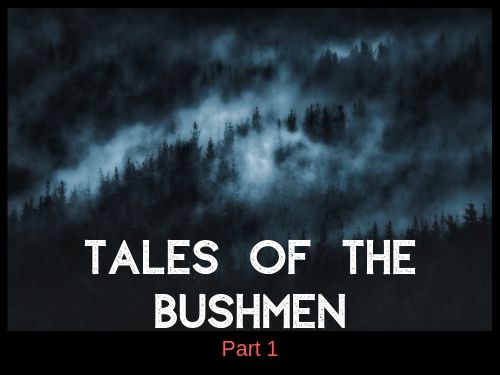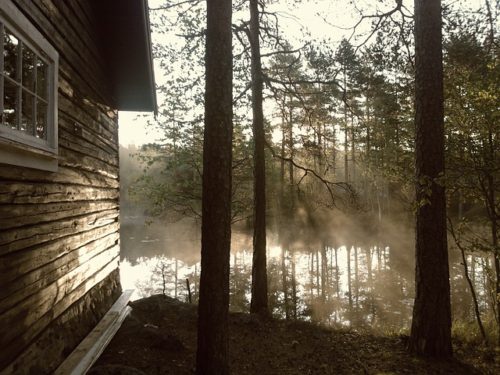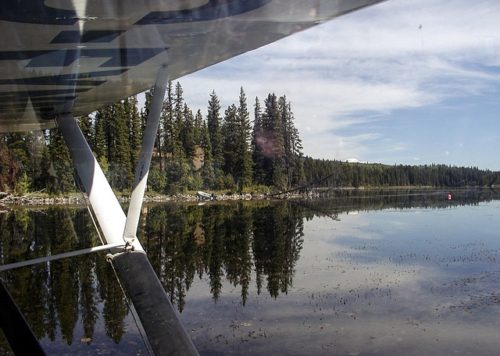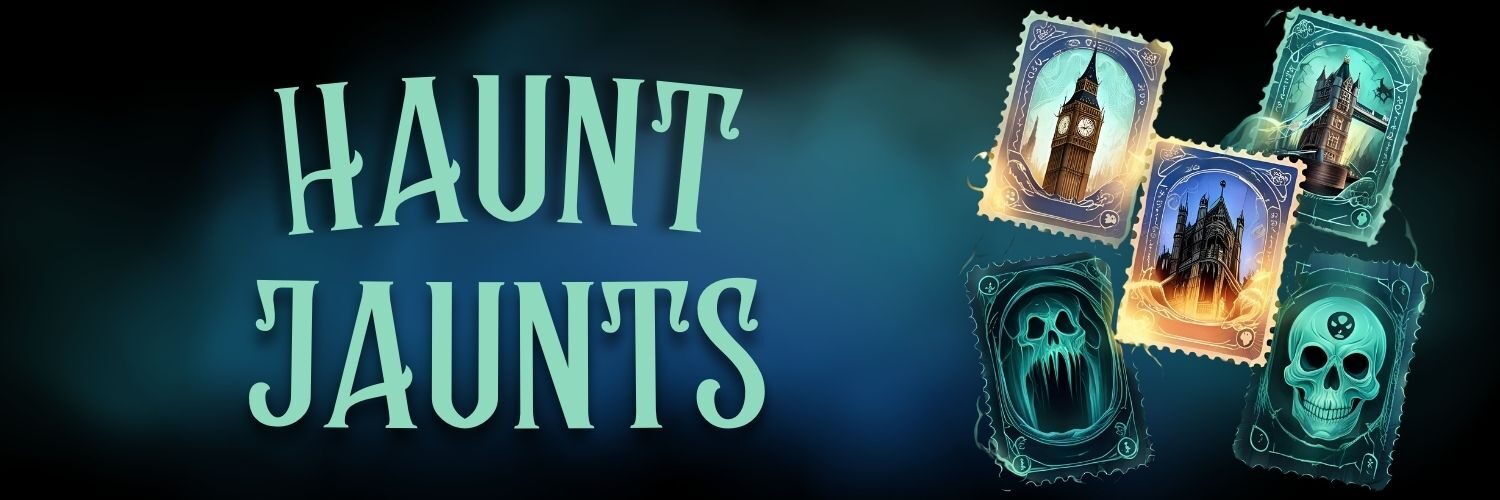
This is a guest post by Keith David Langston about his time living in the woods in the Northwest Territories (N.WT..), and hearing the horrifying stories of “bushmen.” It was then followed by a very mysterious and scary incident he had in his cabin. Because it’s a little long, I decided to break it up into an five part series. Please enjoy Part 1 of his experience.
During college in Los Angeles, I got into acting and modeling. LA is everything you think it is –shallow, bitchy, and delusional. The fact that I was in the entertainment industry only made it worse.
By the time I graduated I was depressed, lost, and in need of a fresh start. I started reading the works of Thoreau, Muir, Emerson, and Leopold. I dreamed of running away into the woods, just as those men did. I wanted to rediscover the purity of life. I wanted to drink clean water, breathe fresh air, experience something real. I wanted to run away from everything LA was.
Shortly before graduation, I started Googling opportunities. There had to be a way for me to escape into the wilderness after college. I had to run away. I knew that for certain.
WWOOF
I stumbled upon the website WWOOF. While it may sound like a website for dog lovers, it’s actually for finding small-scale, eco-friendly volunteer opportunities.
There was harvesting sea salt in the Florida Keys, building yurts in Montana, and one very peculiar opportunity in the Northwest Territories at an abandoned eco-lodge…
The Lodge

The lodge had been deserted during the global recession. The owner needed a group of people to live in small cabins around the lodge to maintain basic maintenance –keep the brush around the lodge cut, make sure moose and bears didn’t break through windows, and run the water pump a few times a week to keep it from clogging– all in the hopes that one day he’d be able to re-open it.
While there, it would be up to us to hunt and fish for meat, grow our own vegetables, forage for berries and herbs, and in general, keep ourselves alive. Living alongside us would be a group of Dené, one of the First Nation tribes of the arctic and boreal forest.
Getting There

There were no roads to the lodge. The closest town was Yellowknife, almost a hundred miles away. The owner provided a float plane from Yellowknife, and not long after graduation, I found myself flying above the Jack pines and cobalt lakes of northern Canada.
The plane began to descend, steadying itself to land in the lake next to the lodge.
The floats hit the lake and the plane bounced before plopping onto the water. As we pulled up to the dock, I could finally see the group I’d be living with for the next three months: an Australian, a Norwegian, two Germans, and a group of seven Dené.
Lodge Life
Over the next week I began to settle in. We chopped firewood, fished for pike in the lake, cleared brush, and picked wild spinach and Saskatoon berries. It was a simple life, and I loved it.
The only bad task was the compost toilet. Being in the middle of the woods meant we had no sewage. Our toilet was an outhouse that sat above a large cauldron. Once a day someone was tasked with opening up the container under the toilet, grabbing a big rake, and the mixing the “compost”. My love for the environment was the only thing that motivated me to churn everyone’s crap.
30 Days of Light
I had arrived on July 1st, during the 30 days of light. It was absolutely stunning. Illuminated by the endless light, the group would get to chatting beside the campfire. Without electricity or our phones to tell us the time, it was easy to lose track. The only clock was inside the locked lodge. To see the time, we’d peek through the window.
“Oh my God, you guys! It’s 3am!” Kyla, one of the Dené girls, screamed in shock.
We’d lose ourselves in a fit of laughter, completely overtaken by the fact that our lives had become so carefree.
The Auroral Season

As August came, so did night. And with the night, came the aurora. It was a peculiarly strong auroral season that year, which had already created a drift of superstition throughout the Far North.
The aurora is caused by solar winds, which are charged particles being released from the sun. Some say that mysterious events tend to be more prevalent during periods when the sun emits more energy.
Birch Sap Tea and Monsters
On one particular night, Norma, one of the two Dené elders that was staying with us, prepared a pot of birch sap tea in a large kettle over the campfire. The flavor was intense. If you could somehow turn I am definitely in the woods, living off the land into a flavor, it would be birch sap tea.
We were all sitting in a circle sipping from our cups. I was sitting next to Kyla, who I had started to become good friends with. We were sort of like kindred spirits. We both loved kayaking, writing, and all things horror. We were two people who were very much the same, even though she had grown up in a small village near the Arctic Circle, and I had grown up in Ohio.
“So,” I said, taking a sip, “Do the tribes up here have any stories of monsters or anything?”
Kyla’s eyes grew wide, “Of course! The Far North is filled with monsters!”
Our conversation had caught the attention of the whole group, perhaps because the two of us weren’t exactly the quietest people.
“Do you have anything like bigfoot?” I asked. “Or the Wendigo?”
Let’s Talk Bushmen
“In the north we have the Bushmen.” Norma said abruptly. “But you shouldn’t talk about them. Just thinking of them can attract them.”
I was now even more intrigued.
“Have you ever seen one?” I asked Norma.
“Seen one? One chased me through the woods when I was a little girl!”
I practically fell off the log I was sitting on. “Tell me! Tell me!” I shouted. “What happened? How did you get away?”
Another girl, Coya, asked the group, “Have you ever heard of that girl from a few years ago?”
“The one who was found on the side of road?” Riley, one of the Dené guys, said.
Norma stood up, dusting off her jeans. “That’s it. I’m going to bed. If you hear anything rumbling around your cabins tonight, you’re on your own. But if you were smart, you’d stop talking about this right now.”
We watched as Norma walked away from the campfire towards the cabins. The second she was out of range, the conversation picked back up.
“Ok!” I shouted, “Tell me everything!”
Keith’s “Tales of the Bushmen” continues in Part 2 as Coya shares her story of a bushman.
About the Author
Keith David Langston currently writes for Travel Channel and Passport Magazine. When he isn’t traveling, he lives in New York City.
Keith Langston is a writer, reporter, and adventurer whose work has appeared in People, Entertainment Weekly, Lonely Planet, and Screen Rant, just to name a few. To learn more, visit his website.
